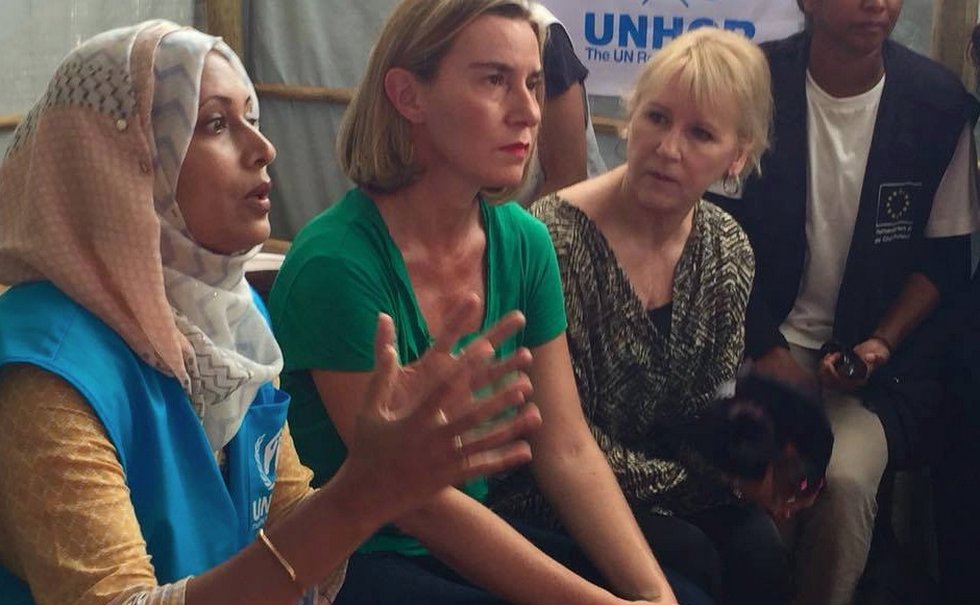Danish Minister for Development Cooperation, Ulla Tørnæs, has on 29 – 30 October visited Cox’s Bazar’s refugee camp in Bangladesh together with Executive Director of the United Nations World Food Programme (WFP), David Beasley.

The Minister saw WFP’s general food assistance programmes, disaster risk reduction work, nutrition centres and school feeding, as well as site management and engineering work carried out by WFP together with the International Organisation of Migration and the UN Refugee Agency.
The Minister stressed the need for further cooperation, dialogue, and sustained efforts from the international community:
“‘It has been one year since I last visited these camps. I am pleased to see positive changes. I am impressed with the results of the combined efforts of the international community and the Government of Bangladesh,” she said.
The joint visit to Bangladesh underlined the strategic cooperation between the Danish Government and the World Food Programme to promote food security particularly in vulnerable countries and contexts to achieve Zero Hunger by 2030, and on promoting partnerships to achieve the Sustainable Development Goals.
Denmark is supporting Rohingyas in Myanmar and Bangladesh through several partners including the WFP, UNHCR, ICRC, IOM, Danish Refugee Council and other NGOs in programmes for a total value of US$ 49 million in humanitarian assistance.
In addition to the projects led by the WFP, the Danish Minister for Development Cooperation also visited other Danish government-supported humanitarian projects on protection, food, and shelter for the refugees. Additionally, Denmark has amended its bilateral country programme by allocating a further US$ 12.7 million to increase resistance among local host communities impacted by the mass migration.
Cox’s Bazar has been one of WFP’s largest Asia operations since August 2017 when more than 700,000 Rohingya refugees began fleeing repression and violence in Rakhine State, Myanmar.



